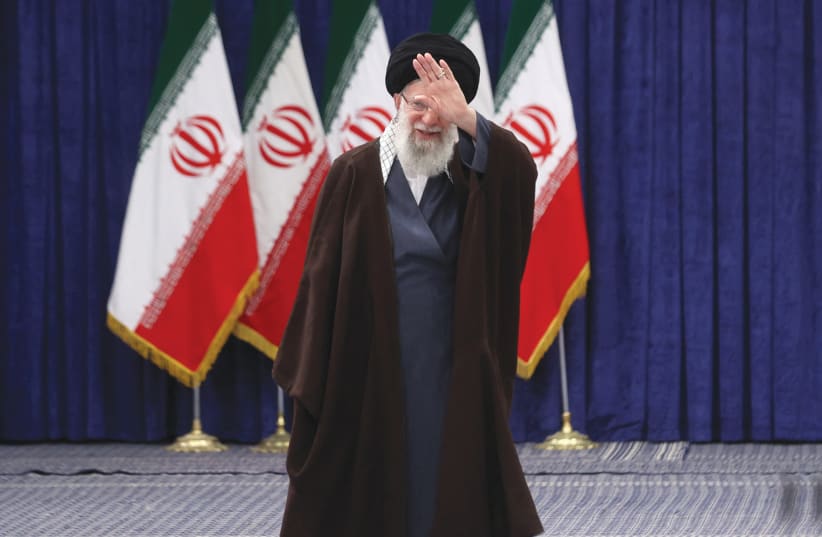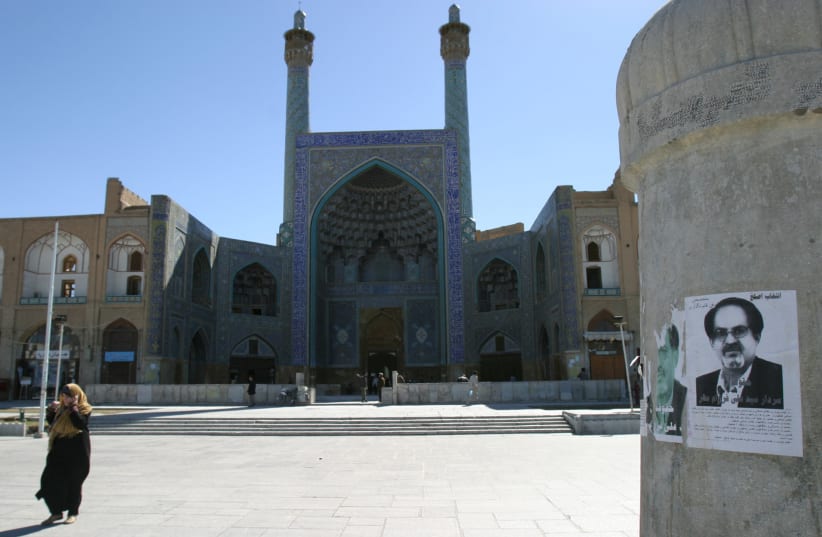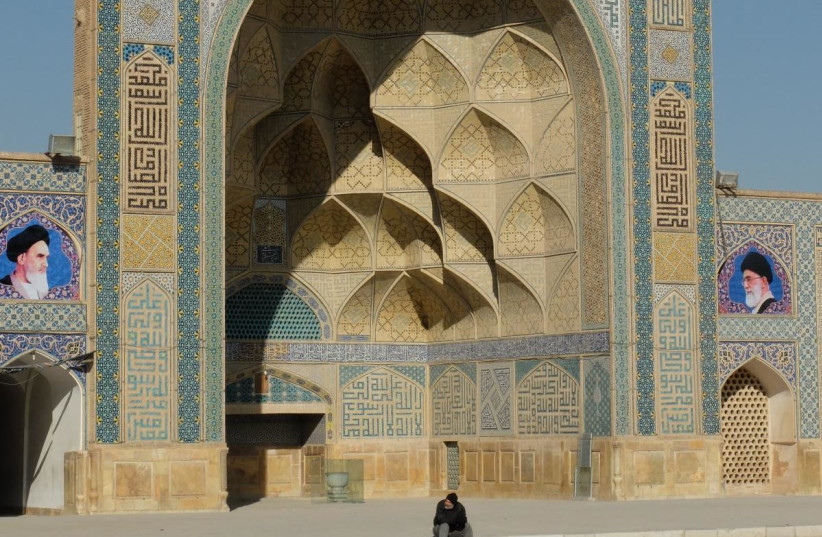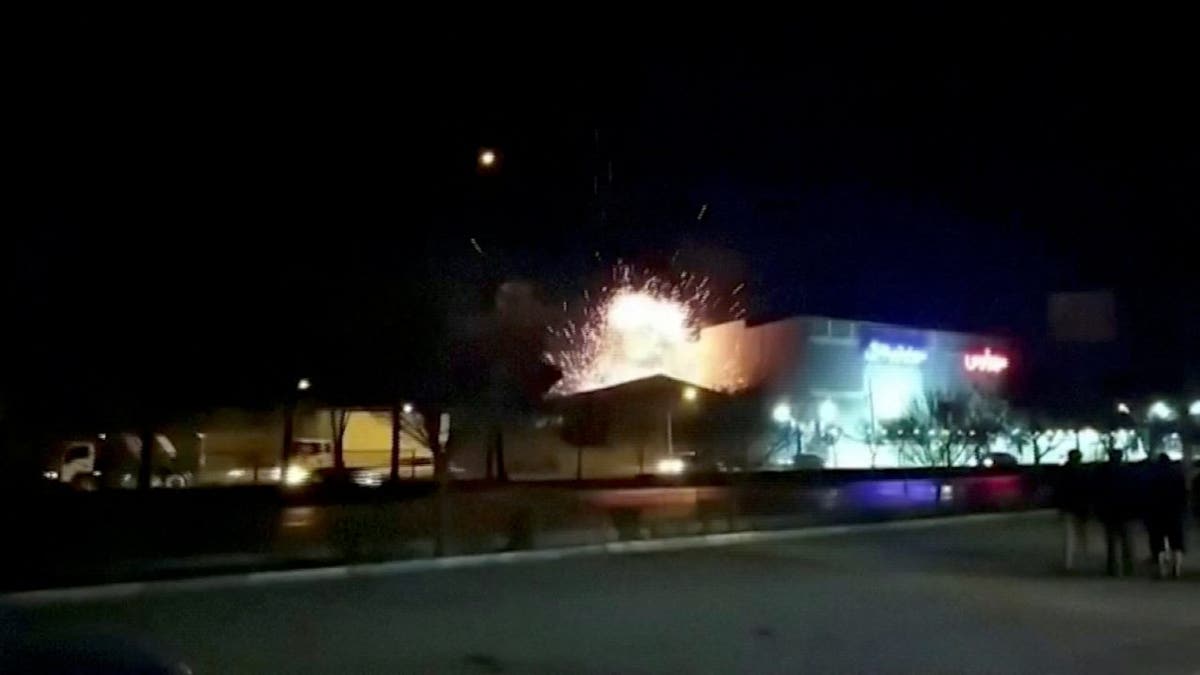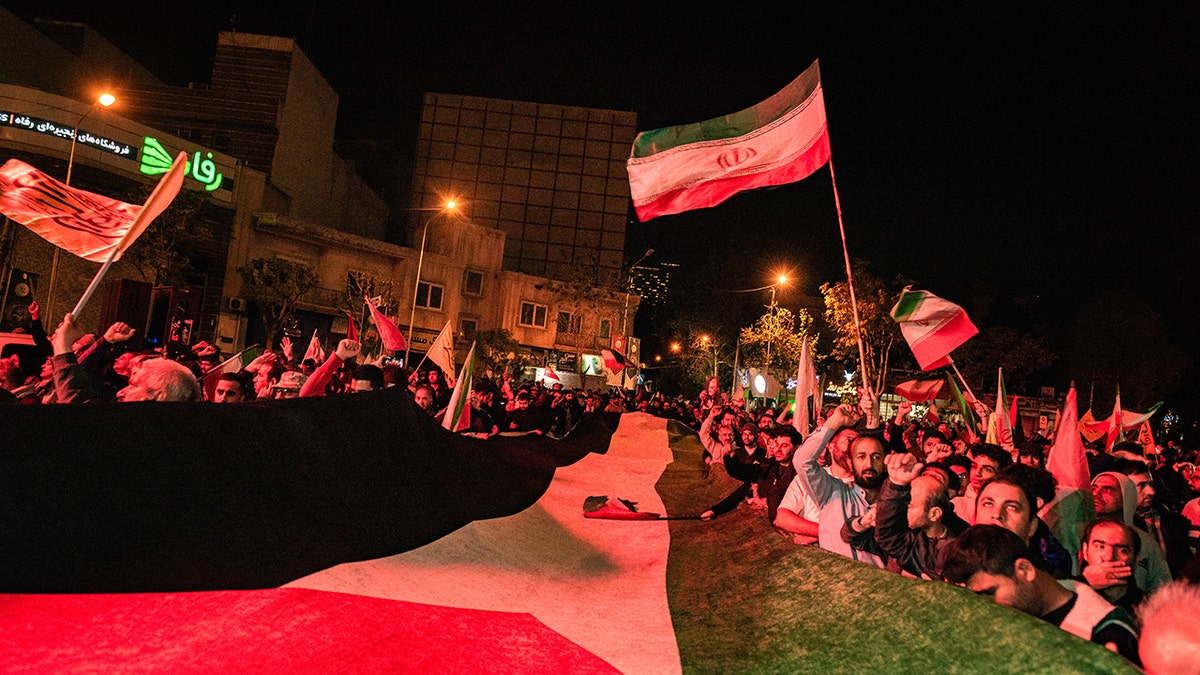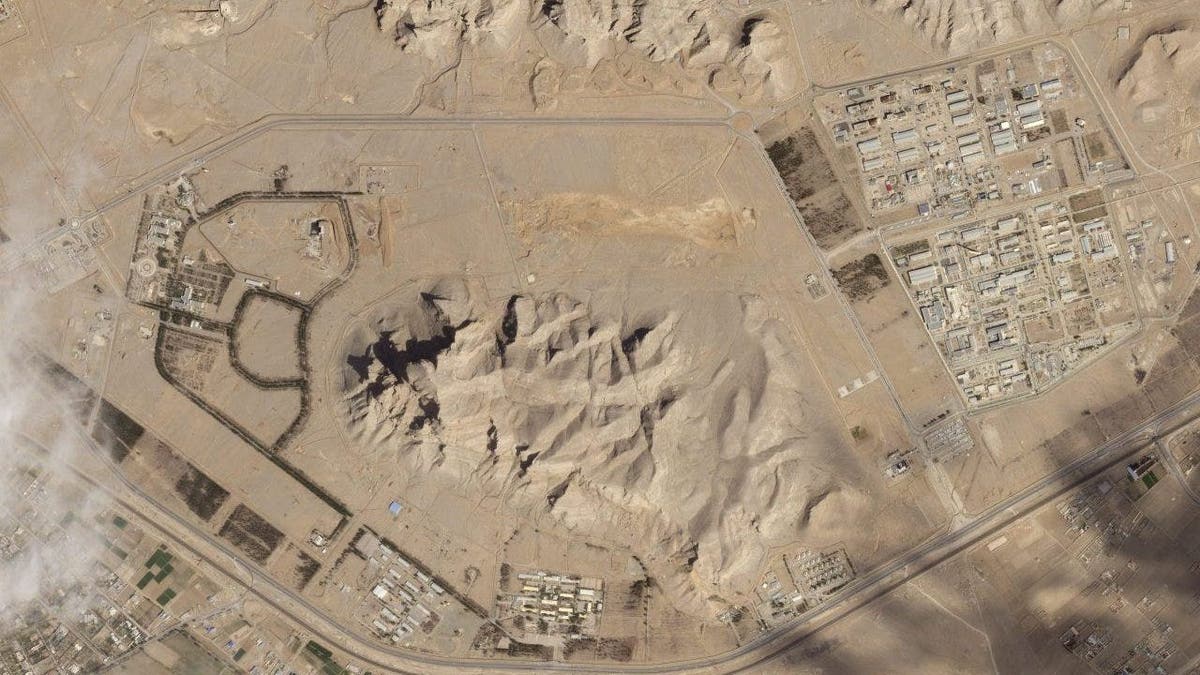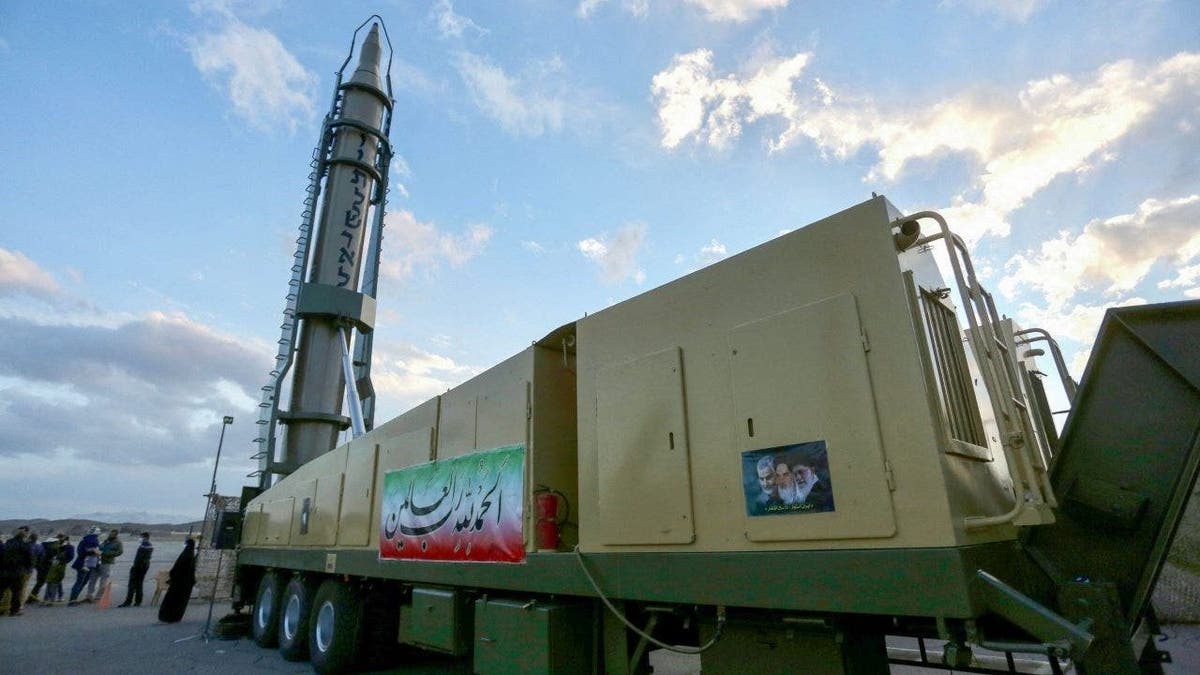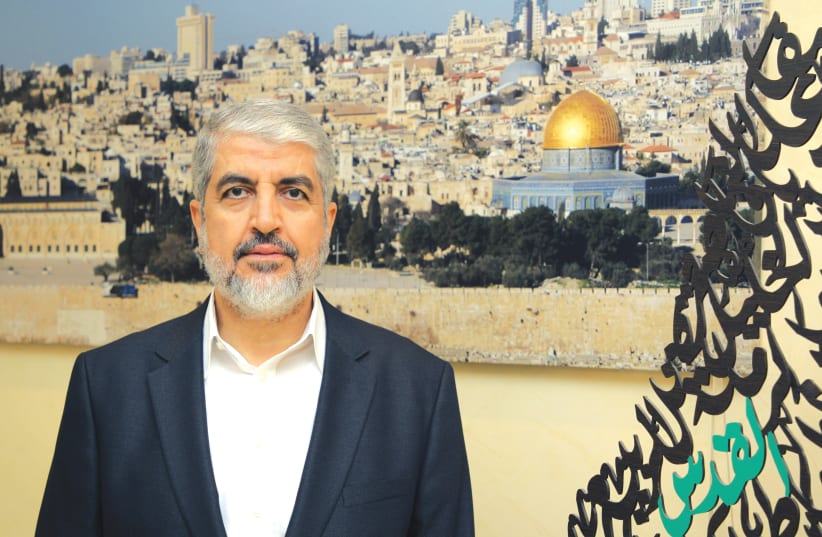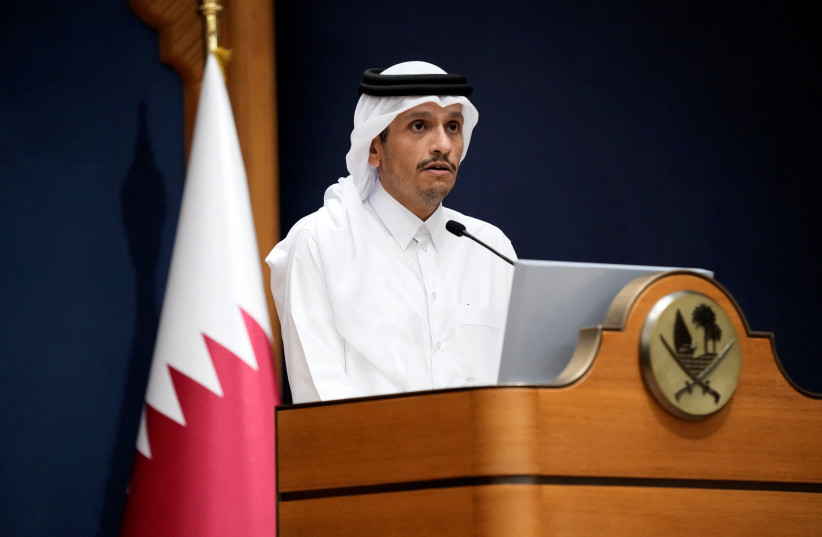by Bruce Bawer
Historically speaking, he’s even a bigger deal than you may think.

[Pre-order a copy of David Horowitz’s next book, America Betrayed, by clicking here. Orders will begin shipping on May 7th.]
On June 16, it will be nine years to the day since Donald Trump rode
down that golden escalator in the Manhattan tower bearing his name and
announced his candidacy for president of the United States. During those
nine years, his name and image have dominated not just American
political discourse but the entirety of American culture, and even world
culture, in a way that may well be without precedent in the entire
history of the Republic. Yes, the name and image of Franklin D.
Roosevelt loomed over the country during his twelve years in office,
just as the name and image of Abraham Lincoln were ubiquitous during his
four-year presidency. But FDR’s centrality was wrapped up in the Great
Depression and, then, World War II, and to think of Lincoln is to think,
first and last, about the Civil War. By contrast, Trump’s predominance
is in one sense just about Trump himself – Trump as symbol – and in
another sense about something even larger than the colossal historical
events associated with FDR and Honest Abe. Trump didn’t become iconic by
presiding over an economic crisis or prosecuting a major war; he became
iconic by doing something that no president before him had ever done:
he took on the establishments of both major political parties, told some
harsh truths about the ways in which those establishments had betrayed
the American people and their Constitution, and rooted his presidential
campaigns, and his entire term in office, in a determination to restore
to the people the kind of government that the Founders had intended. In
doing so, he also became an emblematic figure for people around the
world whose own governments were betraying the freedoms on which they
had been founded.
What about Reagan? Yes, he too was a revolutionary hero: in the wake
of the appalling Jimmy Carter, that master of malaise, the Gipper spoke
of morning in America, speechified ardently about the evils of
Communism, and championed with gusto the cause of freedom around the
world. Still, it must be admitted that during his two terms he did
precious little to drain the Swamp. He didn’t even go so far as to
abolish the perfidious Department of Education, which Carter had just
created in 1979, and which Reagan had inveighed against passionately.
Perhaps Reagan sensed that if he’d tried to do any more than he did to
try to challenge the Deep State, he’d have ended up as Trump did several
decades later, with the whole D.C. apparatus out to destroy him,
bankrupt him, and put him behind bars. Besides, Reagan had his hands
full bringing down the Soviet Union. So I’m not here to diminish Reagan.
He was a giant. But even at the height of his popularity he didn’t take
up as much space in the minds of people around the world as Trump has
done during the last nine years. In
his heyday, Reagan shared the international stage with Thatcher and
Gorbachev, as FDR did with Churchill and Stalin; Trump shares the world
stage with no one. As for most of the other modern presidents –
Ford, Carter, Bush Sr. – they were, by comparison to Trump, utter
pygmies. The point is that the Trump ascendancy is, in modern times,
unique. To find a rough counterpart to his utter domination of the
society and culture, you have to look to the great dictators, from
antiquity right up to the twentieth century – Caesar, Napoleon, Hitler,
Stalin, Mao. The big difference, of course, is that Trump, whatever his
detractors may say, is the furthest thing from a dictator: he’s a
liberator. Besides, dictators have no sense of humor about themselves;
and their admirers, unlike Trump’s fans, don’t feel safe making
affectionate jokes about them.
In his Farewell Address,
President Eisenhower – who had led the Allies to victory in Europe
during World War II, ushering in an era when the U.S. was by far the
most powerful nation in all of human history – famously warned us of the
dangers of that power. “Throughout America’s adventure in free
government,” he said, “our basic purposes have been to keep the peace;
to foster progress in human achievement, and to enhance liberty, dignity
and integrity among people and among nations.” In the postwar era, the
U.S. enjoyed an unprecedented opportunity to achieve these goals. Yet it
was unwise, he counseled, in the name of finding government-funded
cures for every ill, to allow “the public economy” to fall out of
balance with the private. In particular, while it was vital to maintain a
strong military, it was potentially worrying that Cold War
circumstances had compelled the establishment of “a permanent armaments
industry of vast proportions” and necessitated annual military
expenditures that exceeded “the net income of all United State
corporations.” This new state of affairs, observed Eisenhower, posed the
threat of “the acquisition of unwarranted influence, whether sought or
unsought, by the military-industrial complex” – in short, “the
disastrous rise of misplaced power” that could ultimately “endanger our
liberties or democratic processes.” America’s involvement in World War
II, a brilliantly prosecuted conflict with a crystal-clear motive and
goal and two exceedingly powerful enemies that had conquered and
subjugated much of the earth’s surface, lasted only four years; what
would Eisenhower have made of our eight confused, pointless, and
ultimately futile years in iraq and twenty years in Afghanistan – the
latter of which ended with billions of dollars worth of military
equipment being left in the hands of the enemy?
A warrior by profession, trained in the art of deploying military
power, Eisenhower the president was more concerned with placing limits
on the menace posed by unrestricted power to individual freedom. What,
then, would he have made of the Patriot Act, which was ratified after
9/11 in the name of protecting Americans from foreign enemies but which,
as was obvious from the start, had the potential of impinging on
Americans’ own freedoms? What, for that matter, would Eisenhower have
made of the formation of the Homeland Security Department, the very name
of which, at the time, sounded outrageously un-American? Then there’s
this. While Ike’s warning about the military-industrial is well known,
less familiar is the fact that, in the same speech, he warned about the
downside of the scientific and technological revolution – namely, “the
danger that public policy could itself become the captive of a
scientific-technological elite.” How aghast would he have been at every
aspect of the COVID lockdown – from the severe rules about masks and
distancing to the draconian limitations on freedom of movement and
assembly? What would he have made of the pathetic readiness of so many
millions of Americans to knuckle under to these unconstitutional
mandates and to shun relatives, friends, coworkers, and neighbors who,
asserting their fundamental rights as Americans, admirably refused to do
so?
One thing Eisenhower didn’t mention in his Farewell Address was
America’s intelligence services. The Central Intelligence Agency,
founded in 1947, grew out of the wartime Office of Strategic Services.
The National Security Agency came along in 1952, the Defense
Intelligence Agency in 1961. Not all that long ago, many of us were
watching the TV series Homeland (2011-20) and cheering on the
exploits of CIA agents Carrie Mathison (Claire Danes) and Saul Berenson
(Mandy Patinkin), because we thought of the real-life counterparts of
these characters as working for us. Of course, all of these intelligence
agencies were Cold War creations, purportedly necessitated by what was
quite genuinely an existential face-off with the Soviet Union; and for
most of us who lived during the Cold War, almost anything that the CIA
did to keep us one step ahead of the Soviets and to prevent the
expansion of Communism was worth it. Yes, we used to read about the
CIA’s suspected role in certain revolutions and assassinations, and we
may have felt twinges of confusion or discomfort about some of these
actions; but whatever CIA agents did, we told ourselves that they
understood these matters better than we did and that their long-term
motives were admirable – that, in other words, they were fighting for
our freedom in the struggle for global dominance against Soviet
totalitarianism.
After the Cold War ended, new antagonists emerged. But what had been –
or had, at least, seemed – a relatively clear big picture became a
muddle. Why was our government spending blood and treasure to fight
Islamic enemies in the Middle East even as unpleasant but strategically
relevant facts about Islam were being systematically scrubbed from
military and intelligence training manuals, insufficiently vetted Muslim
immigrants were being welcomed to America in huge numbers, and
politicians of both parties (with the unwavering aid of the legacy
media) were constantly reassuring us that Islam was a religion of peace?
Meanwhile, what had once been the Steel Belt – a region of cities
that, thanks to their booming manufacturing sectors, had previously been
populated by some of the most affluent factory workers on the planet –
was gradually being transformed into the Rust Belt, as jobs were
exported en masse to China, Mexico, and elsewhere. Politically, these
blue-collar workers were left high and dry. The Democrats (once the
party of labor, or at least of labor unions) were now more interested in
cultivating certain minority groups who were officially considered to
be oppressed. As the party moved from traditional liberalism to
something that bore an uncomfortable resemblance to Communism, it also
increasingly became the political home of corporate bigwigs and other
high-income types who’d been brainwashed at elite colleges by far-left
professors. As for the members of the Republican establishment, the
large-scale betrayal of decent, hard-working middle Americans mattered
less to them than the lower prices of goods that were now being produced
by underpaid drudges in China and Mexico. Meanwhile, both parties were
perfectly happy with mass illegal immigration – the Democrats because
they wanted the votes, the Republicans because this phenomenon meant the
suppression of wages for low-skilled jobs.
For blue-collar voters who’d been financially ruined by the drastic
decline of American manufacturing, Trump was a godsend – a politician
who, unlike the entire Washington establishment, was actually on their
side. And for those of us who hadn’t really been paying much attention
to the plight of those blue-collar voters, Trump was an eye-opener.
Among other things, he made some of us recognize for the first time the
extent to which, in practice, the two parties were, to a remarkable
extent, one. I remember not so many years ago seeing a photograph of
George W. Bush in a cozy moment with Hillary Clinton. I can’t stand
either of them, but I have to admit, to my great embarrassment, that my
reaction to the picture at the time was to admire the ability of
political opponents to treat each other not just with respect but with
what looked like genuine affection. Today, needless to say, I see that
picture in an entirely different light. It’s a picture of two people who
were and are part of the same exclusive club, who have profited (and
whose families have profited) from the same system, and who, while
supporting different candidates in elections, were content with the
results so long as the winners were reliable insiders who had no
intention of trying to change the game.
It was, as I say, Trump who opened the eyes of millions of us to this
sordid, cynical reality. Some of us may have been at least somewhat
aware of the extent to which America’s government was in the hands of a
permanent Deep State, and some of us may even have recognized just how
much of a betrayal this was of the Constitution and of the people. But
Trump, with his passionate denunciations of the Swamp, focused our
attention on this outrage. He forced us to realize that for a long time
it hadn’t really mattered all that much whom we voted into national
office, given that a significant amount of the real power in Washington
was actually in the hands of the executive departments, the intelligence
community, and agencies like the IRS. This was why the issues that
really mattered to American voters – such as mass immigration and the
mass export of blue-collar jobs – had consistently been ignored by both
parties and unmentioned in campaign speeches.
But it wasn’t just Trump who opened our eyes. So did his enemies. The
desperate effort by Obama, the Clintons, and their cronies to tie him
to Russia – a charge that was ridiculous on the face of it, but that was
pushed by the media without surcease – only served, in the end, to show
just how much of a threat to their power they recognized him to be.
Ditto the unprecedented attacks on Trump, even while he was in office,
by military and intelligence officials who were technically under his
command. The two baseless impeachments of Trump, the raid on Mar-a-Lago,
the blizzard of ridiculous prosecutions directed at him, and the
attempt by New York’s attorney general to seize his properties all
underscored both the political establishment’s desperation to remove him
from the chessboard and the nakedly undemocratic lengths to which
public officials all over the country and at every level are willing to
go in order to preserve the Deep State in its current form. And there
are many more developments, of course, that have demonstrated the
fierceness of Trump’s enemies’ determination to crush him and everything
he represents – among them the long-term detention of January 6
protesters, the over-the-top raids on the homes of Trump allies like
Roger Stone, and the angry, disturbing speech that Biden gave in
September 2022 against that blood-red background. All of these events
showed just how much contempt the Democratic elites have for the white
working-class Americans who dare to recognize in Donald Trump a champion
of the people and of America’s founding values. And nothing reflected
that contempt more powerfully than a single word uttered by Hillary
Clinton in 2016: “deplorables.”
Trump and his movement, say his enemies, represent a “threat to our
democracy.” The fact is that Trump is the symbol of everything that
stands in the way of the efforts by the legacy media and social-media
giants (X excepted), as well as by the United Nations, European Union,
World Economic Forum, and other international organizations, to
undermine democracy – by, among other things, silencing dissent from the
progressive agenda and plotting to remove beef from our diets, deny us
air travel, and confine us to “fifteen-minute cities.” In short, the
very people who label Trump a “threat to our democracy” are the ones who
are intent on dismantling democracy – not just in America but
throughout what we used to call the free world. Take Justin Trudeau’s
freezing of the bank accounts of truckers who protested the COVID
lockdowns. Note how British police give free rein to protestors who call
for Jewish genocide but arrest patriots who dare to wave the Union
Jack. And witness what happened just the other day in Brussels, where
local authorities sent a battalion of police to close down a gathering
of top-flight conservative leaders from around Europe, including Nigel
Farage, Éric Zemmour, and Viktor Orbán.
For many of us, the chilling abuses of power by left-wingers who are
determined to bury the MAGA movement and its international counterparts
haven’t just led us to worry about the present and future of American
freedom. They’ve caused us to wonder just how free we’ve really been
during the last half-century or so. It was in 1961 that Eisenhower gave
his Farewell Address. He was succeeded by John F. Kennedy, who among
other things wanted to shutter the CIA, which he recognized as having
gotten out of control. He was assassinated in 1963. The Warren
Commission, which concluded that Lee Harvey Oswald was the killer of JFK
and had acted alone, was the ultimate Deep State entity, consisting of
the Chief Justice, the head of the CIA, the former head of the World
Bank, two Congressmen, and two veteran Senators. Over the years, Roger
Stone and other investigators have not only shown the Warren
Commission’s conclusions to be utterly at odds with mountains of
evidence but have also provided a great deal of information in support
of the hypothesis that the murder was, in fact, the ultimate Deep State
crime, involving LBJ, the CIA, and the FBI.
There are those who, reading backwards from the current treatment of
Trump by his powerful enemies, now say that the JFK assassination was
the moment when the free Republic that Eisenhower spoke of with such
reverence and concern in his Farewell Address underwent a dramatic
behind-the-scenes transformation. Stone and others have pointed out that
our involvement in the Vietnam War, however legitimately motivated by a
desire to contain Communism in southeast Asia, also was of great
personal profit to LBJ, who stepped up our war effort almost immediately
after entering the Oval Office. Deeply troubling questions have even
been raised about the 1981 assassination attempt on President Reagan,
which may, after all, have had less to do with Jodie Foster than the
news reports would have it.
Yes, splashy books presenting revisionist theories about the JFK
assassination and other historical crises of the last half a century are
nothing new. But not until Trump came along and pulled back the curtain
on the extent of Deep State shenanigans in our own time did it become
much easier to believe in the hypotheses put forward in those books.
Yes, we’ve always known that American history, like all of human
history, has been full of corruption: the 1919 World Series was fixed;
any number of elections, including, famously, the one that first sent
LBJ to Congress, were rigged; everybody knows that JFK won in 1960
because the Mob took care of Illinois and LBJ took care of Texas. But
although most of us maintained a healthy American cynicism about
professional politicians and big government, we still basically trusted
the system and believed that our votes (usually) counted. No, the U.S.
government was scarcely perfect. But what human institution is?
America’s founding documents were based on an unblinkered recognition of
the depth of human moral frailty. Not only, moreover, could we hardly
expect contemporary politicians to measure up to Adams and Jefferson;
the fact was that even Adams and Jefferson were not without blemish: the
former had signed the Alien and Sedition Act, and the latter’s purchase
of Louisiana had no constitutional warrant.) But it was the advent of
Trump, and the extraordinary scale of the campaign to take him down,
that made many of us realize the degree to which our leaders in
Washington had rejected the dictates of the Constitution.
Some observers gripe that we all think and talk too much about Trump –
that we make more of him than he is or deserves, that our preoccupation
with him serves to obscure the importance of other figures on the
political scene and reflects a severe lack of a sense of historical
proportion. On the contrary, I don’t think that most of us, however much
we may love (or hate) him, fully appreciate the extraordinary scale of
the revolution he has wrought. Other figures on the political scene?
What political scene? Trump transformed the political scene,
and there’s no going back. It’s beyond strange these days to try to read
most of the veteran inside-the-Beltway commentators, both Democrat and
Republican, because they genuinely seem to believe – or to hope against
hope – that somehow the clock can be turned back, the genie put back in
the box, and pre-Trump politics as usual restored.
Such thoughts are nothing short of delusional. Tens of millions of
decent, patriotic Americans are not magically going to unlearn what
they’ve learned in the last nine years. They’re not going to forget the
vile lies, poisonous acts, and outright treason of Obama, the Clintons,
Adam Schiff, Jerry Nadler, Rachel Maddow, John Brennan, Merrick Garland,
Antony Blinken, Alejandro Mayoras, and a host of others. They’re not
going to go back to believing in the good faith of the D.C.
establishment any more than you and I are going to go back to believing
in Santa Claus or the Easter Bunny. Because Trump did indeed effect
nothing less than a revolution – a revolution of the American mind and
heart and soul. He woke us up. He educated us, in a way that a teacher
with a more sober and restrained classroom manner would never have been
able to do. He showed us who our leaders really are and showed us who we,
if we dare to take heart and take action, might be. He encouraged us –
inspired us – to take our country back, all the while believing in its
principles, its history, and (in spite of everything) its enduring
promise.
Bruce Bawer is a Shillman Fellow at the David Horowitz Freedom Center.
Source: https://www.frontpagemag.com/the-remarkable-uniqueness-of-donald-trump/
Follow Middle East and Terrorism on Twitter
